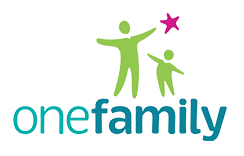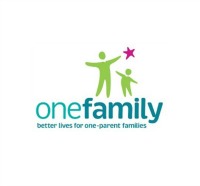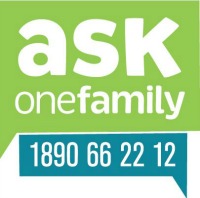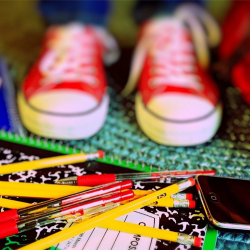Press Release
Budget 2016 could finally get it right for the poorest of Ireland’s children.
But will Government deliver for families on Tuesday?
(Dublin, Friday 9 October 2015) One Family, Ireland’s organisation for people parenting alone, sharing parenting and separating, outlines in its pre-Budget 2016 submission ways that Government could finally get it right for people parenting alone and their children. But with levels of child poverty in Ireland increasing dramatically, and one-parent families statistically those at higher risk of deprivation and homelessness, will Government take this opportunity to make good on its promises by reducing the barriers to accessing education and employment; or will it target one-parent families again?
Yesterday Taoiseach Enda Kenny told the Dublin Chamber of Commerce that he “will prioritise measures that boost jobs and break that cycle of joblessness and poverty” in the upcoming Budget and beyond. One Family asks if he will deliver on this promise, and reiterates its recommendations for Budget 2016 which would provide a social and economic future for one-parent families based on investment and opportunity.
Karen Kiernan, One Family CEO, states: “We are stating clearly again that Government must invest in Budget 2016 in a coherent package of supports and services for parents moved off the One-Parent Family Payment and to Job Seeker’s Allowances if it is serious about supporting lone parents into sustainable employment and out of social welfare; particularly after a series of cuts targeting one-parent families since Budget 2011. Without this, the Department of Social Protection’s current reform process will continue to fail and families will continue to suffer.”
Stuart Duffin, One Family Director of Policy & Programmes, comments: “We have been highlighting the need for quality, affordable childcare and out of school care; access to quality and assured housing; and family-friendly employment opportunities, which require significant government investment and cross-departmental collaborations. One Family’s recommendations for Budget 2016 are simple, low cost and cost effective and designed to make a real difference in increasing positive outcomes for many thousands of children.”
A package of supports for OFP recipients being transitioned must include:
- The Income Disregard to remain at €90 for all OPFs regardless of their payment.
- Equal access to all activation measures and in particular MOMENTUM.
- Access to free fees for part-time education options.
- Allow JSTA CE participants to have an additional payment of €50/week equalising it with JobBridge in recognition of family costs.
- Provide specialist bridging programmes for lone parents such as New Futures and New Steps.
- Raise the Qualified Child Increase to help reduce child poverty by tailoring it to the poorest families.
- Recognise the value and costs of shared parenting by providing the Single Person Child Carer Tax Credit to each parent.
- Adjust the Family Income Supplement so that it makes work pay for lone parents by reducing the qualifying hours to 15 hours per week and taper payment.
- Provide a high quality accessible Childcare and Out Of School Care system.
/Ends.
NOTES FOR EDITORS
In addition to the introduction of reform of the One-Parent Family Payment which is resulting in increased poverty for many working lone parents, previous cuts that have targeted One-Parent Family Payment recipients and one-parent families since Budget 2011 include:
- The One Parent Family Tax Credit was discontinued and replaced with the Single Person Child Carer Credit, which only one parent can claim, whereas the previous credit could be claimed by both parents sharing parenting.
- Maternity Benefit was standardised at €230, an increase for some but a decrease of €32 for others.
- The FÁS training allowance was discontinued for those in receipt of some social welfare payments, including those receiving One Parent Family Payment.
- Child Benefit was reduced from €140 per child to €130 (for 1st, 2nd and 3rd child) in Budget 2013.
- Back to School Clothing & Footwear Allowance (BTSCFA): Reduced from €250 to €200 for children aged 12+, and from €150 down to €100 for 4-11 year olds.
- Cost of Education Allowance (paid with Back to Education Allowance, BTEA) cut completely from €300 down to €0 for all new and existing BTEA recipients.
- BTSCFA, from €305 reduced to €250 for 12+, and from €200 down to €150 for 4-11 yr olds; age eligibility also increased from 2 to 4 year olds in 2012.
- Ongoing cuts to OFP include Income Disregard cut from €146.50 down to €90.
- The half rate transition payment of OFP was cut for those who were going into work and stopping payment.
- OFP recipients lost access to half rate payment for Illness Benefit and Jobseeker’s Benefit, where applicable.
- Fuel Allowance was reduced from 32 weeks to 26 weeks.
- Cost of Education Allowance (for BTEA recipients) reduced from €500 to €300.
- CE Scheme participants, many of whom were lone parents, had their training and materials grant cut from €1,500 to €500; and new CE participants from 2012 could not get ‘double’ payment, just €20 extra allowance.
- Cuts included the main rate of social welfare payments reduced from €196 down to €188.
- Child Benefit was reduced by €10 for 1st and 2nd child / €150 to €140; 3rd child / €187 to €167; 4th and subsequent child / reduced to €177.
- Christmas Bonus was discontinued (half-rate partial reinstatement for some last year).
About One Family
One Family was founded in 1972 as Cherish and is Ireland’s leading organisation for one-parent families and people sharing parenting or separating, offering support, information and services to all members of all one-parent families, to those sharing parenting, to those experiencing an unplanned pregnancy and to professionals working with one-parent families. Children are at the centre of One Family’s work and the organisation helps all the adults in their lives, including mums, dads, grandparents, step-parents, new partners and other siblings, offering a holistic model of specialist family support services. These services include the lo-call askonefamily national helpline on 1890 66 22 12, counselling, and provision of training courses for parents and for professionals. One Family also promotes Family Day and presents the Family Day Festival every May, an annual celebration of the diversity of families in Ireland today (www.familyday.ie). For further information, visit www.onefamily.ie.
Available for Interview
Karen Kiernan, CEO | t: 01 662 9212 or 086 850 9191
Stuart Duffin, Director of Policy & Programmes | t: 01 662 9212 or 087 062 2023




 We have summarised some of the main changes from Budget 2016 (presented on 13 October 2015) which may affect one-parent families. If you or anyone you know would like information regarding your individual circumstances, askonefamily is available on 1890 66 22 12 / 01 662 9212 or by
We have summarised some of the main changes from Budget 2016 (presented on 13 October 2015) which may affect one-parent families. If you or anyone you know would like information regarding your individual circumstances, askonefamily is available on 1890 66 22 12 / 01 662 9212 or by 





